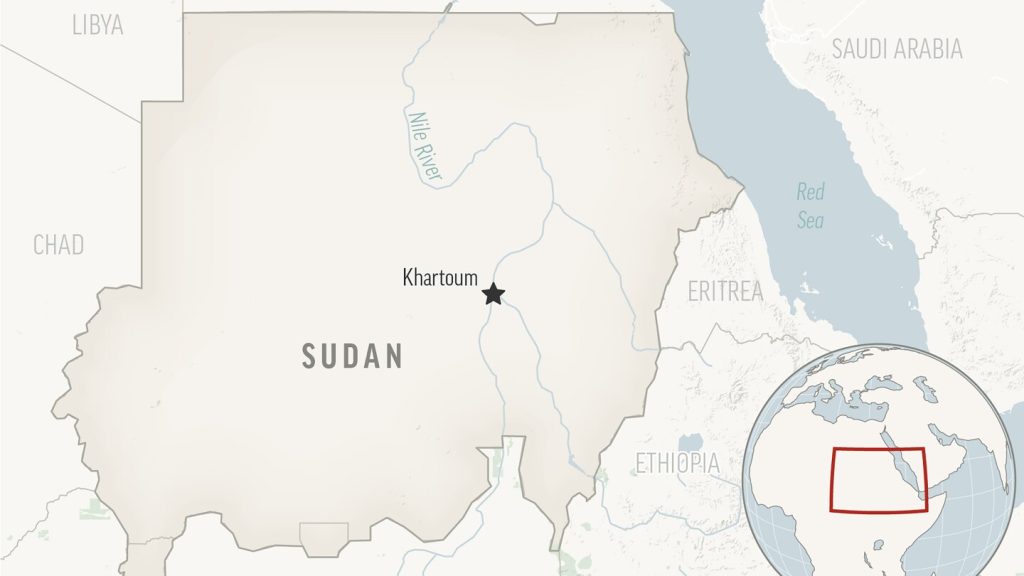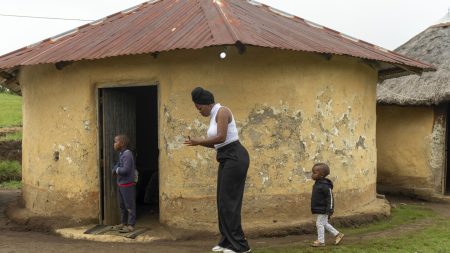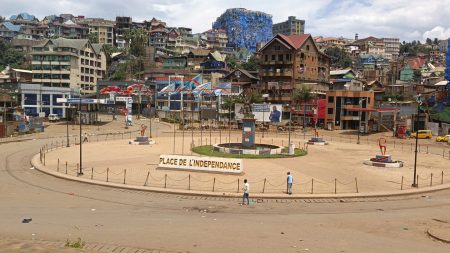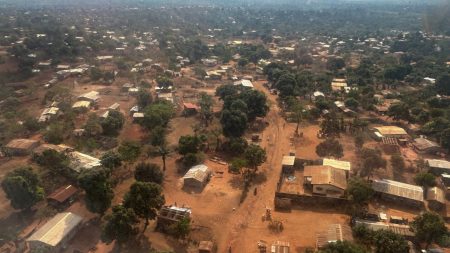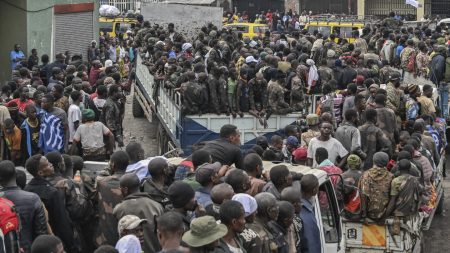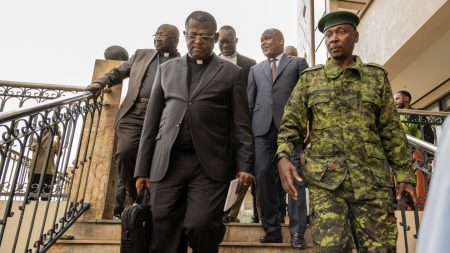A Devastating Attack on Civilians in Omdurman, Sudan
In a horrific escalation of violence in Sudan’s ongoing civil war, a paramilitary group known as the Rapid Support Forces (RSF) launched a deadly attack on the Sabrein Market in Omdurman, a city just outside the capital Khartoum. The assault, which occurred in an open marketplace, resulted in the deaths of at least 54 people and left 158 others wounded, according to health authorities. The attack is the latest in a string of violent incidents that have plagued the northeastern African nation, further deepening the humanitarian crisis gripping Sudan.
The RSF, which has been embroiled in a brutal conflict with Sudan’s military since April 2023, did not immediately comment on the attack. However, government officials and aid workers were quick to condemn the violence. Khalid al-Aleisir, Sudan’s Minister of Culture and government spokesperson, described the attack as a “criminal act” that violated international humanitarian law. He emphasized that the casualties included many women and children, underscoring the indiscriminate nature of the violence. The market was not only a place of commerce but also a hub of community life, making the attack particularly devastating for local residents.
The aftermath of the attack painted a harrowing picture of destruction and despair. A mortar shell landed just meters away from al-Naw Hospital, which became the primary facility for treating the wounded.Medical staff at the hospital were overwhelmed by the influx of patients, many of whom suffered severe injuries. The Sudanese Doctors Syndicate reported that the hospital faced a critical shortage of medical teams, including surgeons and nurses, exacerbating the challenges of providing adequate care. The morgue was filled to capacity, and the scenes of death and suffering were described as nothing short of catastrophic.
Eyewitness Accounts and the Human Toll of War
Chris Lockyear, the secretary general of Doctors Without Borders, was present at al-Naw Hospital when the first casualties began arriving. He described the scene as one of “utter carnage,” with dozens of people suffering devastating injuries. Lockyear’s account highlighted the relentless nature of the war and its disproportionate impact on civilians. “What I see in front of me is a scene of utter carnage, yet another tragic example of this relentless war on people,” he said. His words capture the sheer scale of human suffering unleashed by the conflict.
The attack on Sabrein Market was not an isolated incident but part of a larger pattern of violence that has defined Sudan’s civil war. Just a week earlier, the RSF had attacked the only functional hospital in the besieged city of El Fasher in Darfur, killing approximately 70 people. These attacks have left civilians caught in the crossfire, with little access to safety or medical care. The conflict has already claimed the lives of more than 28,000 people, displaced millions from their homes, and pushed families to the brink of starvation. Desperate to survive, some have resorted to eating grass as famine spreads across parts of the country.
A Broader Conflict with Far-Reaching Consequences
The civil war in Sudan, which escalated in April 2023, has been marked by widespread atrocities, including ethnically motivated killings, rapes, and other forms of violence. The conflict has drawn international condemnation, with the United Nations and human rights groups documenting numerous abuses. The International Criminal Court (ICC) has announced an investigation into alleged war crimes and crimes against humanity committed during the conflict. Meanwhile, the U.S. has accused the RSF and its proxies of committing genocide, further intensifying the global spotlight on the crisis.
Despite the ongoing violence, recent months have seen shifts in the balance of power on the battlefield. The RSF has suffered several significant setbacks, including the loss of control over key areas in Khartoum, Omdurman, and other regions. Sudan’s military has regained control of several strategic locations, including the city of Wad Medani, the capital of Gezira province, and the country’s largest oil refinery. These developments suggest that the conflict is far from over, with both sides dug in for a protracted fight.
The Role of International Aid and Advocacy
In the face of such overwhelming human suffering, international aid organizations and advocacy groups have played a critical role in providing emergency assistance and raising awareness about the crisis. Doctors Without Borders, for example, has been working tirelessly to treat the wounded and provide medical care in overwhelmed facilities like al-Naw Hospital. However, the scale of the crisis has stretched these organizations to their limits, with many calling for greater international support to address the growing humanitarian needs.
Social media has also become a vital tool for documenting the atrocities and amplifying the voices of those affected. A video posted by correspondent Nezar Bogdawi from Saudi-owned Al Arabiya TV showed rows of body bags outside al-Naw Hospital, each marked with a number. The footage also revealed the harrowing conditions inside the hospital, where the wounded lay on the floor, awaiting treatment. Such images have helped bring the reality of the conflict to a global audience, galvanizing calls for action to protect civilians and hold perpetrators accountable.
Justice and Accountability in the Midst of War
As the conflict rages on, questions about justice and accountability have come to the forefront. The ICC’s investigation into alleged war crimes and crimes against humanity represents a crucial step toward holding those responsible for the violence accountable. However, the path to justice is likely to be long and fraught with challenges, particularly given the complexity of the conflict and the lack of cooperation from the parties involved.
The U.S. accusation of genocide against the RSF and its proxies has further underscored the need for a robust international response. While the term “genocide” carries significant legal and political weight, it also highlights the scale of the atrocities being committed and the urgent need for action to prevent further loss of life.
Conclusion: A Call for Peace and Protection of Civilians
The attack on Sabrein Market is a heartbreaking reminder of the human cost of war and the urgent need for a peaceful resolution to Sudan’s conflict. As the death toll continues to rise and millions of people endure unimaginable suffering, the international community must remain vigilant in advocating for the protection of civilians and the prosecution of those responsible for atrocities. The voices of victims, survivors, and aid workers must be amplified, and the world must not turn away from the crisis unfolding in Sudan. Only through collective action and a commitment to justice can the cycle of violence be broken, and the people of Sudan be given a chance to rebuild their lives in peace.





